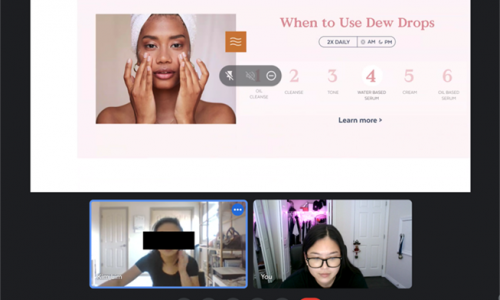
While it is challenging to secure a co-op placement with a large, well-known company, it is crucial for you to get the most of your experience while making a name for yourself for your future endeavors when you do, be it future recommendations, references or even full-time opportunities.
During my 12-month placement with a large high-tech company based in Ontario, I have experienced a time where I felt my talents and abilities were underappreciated and unnoticed. I went through five months of low attention and minimum tasks assigned, and just as I was thinking of shortening my contract, some of the projects I had been doing got me recommended to drive one of the beta projects that a regular Project Manager or Project Specialist gets to do. Such opportunity certainly did not come easy, and based on my experience I wanted to share a few tips to help get you more recognized at work, so that you do not have to wait as long as I did working as a co-op student.
1. Make Phone Calls Whenever Possible as Opposed to Emails
Working for a large company means that the regular means of communications are vastly diversified. You can contact a person with in-person meetings, regular phone calls, emails, instant messaging , video conferences, and the list goes on. However, I learned that the best way to get you recognized is to always cut straight to the point, keep your communication short and concise to build on your professional image.
Having said that, it is also important to know about your co-workers’ personality and work habits. I would suggest only having a casual conversation to know more about them only after a few encounters such that you are familiar with their working style.
On that note, I would strongly recommend you to identify a key individuals that you can really build a real connection with, as opposed to know a lot of people but only by their first name. It follows that you can keep in touch with these individuals even after you leave the organization, for continuous professional mentorship and guidance.
2. Introduce Yourself During Meetings, and Try to Have Your Presence Felt
I have often attended virtual meetings consisting of more than 20 participants, and my casual line of introduction at the beginning has always been “Dennis from beta.” Be sure to use consistent and memorable line to introduce yourself, stay alert and ask smart questions.
Also, another easy way to get recognized is to send a follow-up email summarizing the issues covered whenever possible. However, be consistent and persistent about doing so, you will sure be asked if the regular email summaries are missed even just once.
3. Take Responsibility and Ownership and Add a Personalized Touch
In a larger organization, email exchanges that require your input can easily average over 50 per day. In my particular case, we have often used the project or program distribution lists to send out email notices to a mass audience. I have come to realized that, in order for you to gain more exposure and take more accountability of your tasks, try to take credits of your own work. For instance, in my mass emails, I always use the closing line “Dennis on behalf of the ABC Beta Project Team”, and encourage the recipients to contact you for any relevant inquires.
4. Be Persistent and Try to Stand Out, Always Aiming for the Extra Mile
Again, you are as likely to see people who leave on time or see dedicated individuals who work extended hours on a regular basis, sometimes even on a weekend. It is my strong belief that as a co-op, you are building up your future career, be it a potential full-time position, the recommendation from your co-workers and supervisors for your next opportunity, or simply making a name for yourself.
During a busy day, if I cannot finish my tasks before the regular working hour ends, I often volunteered to sacrifice my personal time to get as much done as possible. It is my belief that the more time and effort I put into my work, the more my colleagues will value my presence and input. As a friendly tip, if you work for a larger organization and you see your team member who is also working extra hours, and you happen to have something to discuss with them, make sure you call them instead of emailing as it is often easier and quicker to do so over the phone than having your colleagues to take the time to type out the email.
Again, as cliché as it gets, your experience is in your hands. If you have accepted the job offer, you might as well do the best you can while you're there and prepare yourself for the world beyond graduation.














